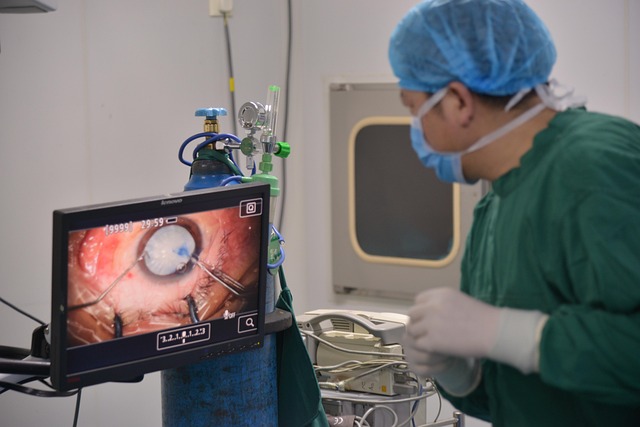Liability risks in plastic surgery are multifaceted due to its technical nature and patient impact. Adequate liability insurance for plastic surgery clinics covers legal fees, settlement expenses, and damages, allowing practitioners to focus on quality care. This protection is critical for aesthetic surgeons to navigate legal challenges and maintain clinic reputation. Choosing insurers specializing in medical malpractice coverage is essential for policies catering to the specific needs of plastic surgery clinics. Effective risk management includes staff training, robust record-keeping, communication systems, compliance with regulations, and suitable liability insurance for plastic surgery clinics.
In the competitive world of aesthetic surgery, effective liability protection is not a luxury—it’s an essential tool for success. This comprehensive guide explores the multifaceted landscape of liability risks in plastic surgery, with a focus on how liability insurance for plastic surgery clinics plays a pivotal role in mitigating potential disasters. From understanding the unique challenges to navigating claims and implementing robust risk management practices, this article equips practitioners and clinic owners with vital insights for safeguarding their futures.
- Understanding Liability Risks in Plastic Surgery
- The Role of Insurance in Risk Mitigation
- Types of Coverage for Aesthetic Surgeons
- Key Considerations When Choosing Insurers
- Navigating Claims and Legal Proceedings
- Best Practices for Risk Management in Clinics
Understanding Liability Risks in Plastic Surgery

Liability risks in plastic surgery are multifaceted, given the highly technical nature of procedures and the significant impact they can have on patients’ lives. Every operation carries inherent dangers, from infection to adverse reactions to complications during recovery. For aesthetic surgeons, these risks are exacerbated by the pressure to deliver results that meet or exceed patient expectations, often with minimal downtime and scarring.
One key strategy for mitigating these risks is through comprehensive liability insurance for plastic surgery clinics. This coverage protects practitioners and facilities from financial loss resulting from malpractice claims. It includes legal fees, settlement expenses, and damages awarded to plaintiffs, providing a safety net in case of unforeseen incidents. By purchasing adequate liability insurance, surgeons can ensure they are prepared for potential outcomes, allowing them to focus on delivering quality care without undue worry.
The Role of Insurance in Risk Mitigation

Liability protection is a cornerstone for aesthetic surgeons and plastic surgery clinics, offering crucial risk mitigation strategies. Insurance plays a vital role in shielding practitioners from potential financial losses due to medical malpractice claims. Specifically, comprehensive liability insurance for plastic surgery covers accidents or negligence that may arise during procedures, including unexpected complications or adverse outcomes.
In the world of aesthetic surgeries, where even minor incidents can lead to significant legal repercussions and financial strain, having adequate coverage is essential. This protection enables surgeons to focus on patient care without the constant burden of potential liabilities. In terms of risk management, it’s worth noting that insurance provides a safety net, ensuring that clinics can navigate through legal challenges and maintain their reputation in today’s competitive healthcare landscape.
Types of Coverage for Aesthetic Surgeons

Aesthetic surgeons, like their medical counterparts, require robust liability protection due to the high-stakes nature of their work. Liability insurance for plastic surgery clinics is a crucial component in mitigating risks associated with procedures that range from non-invasive treatments to complex reconstructive surgeries. This coverage protects against potential claims arising from medical malpractice, personal injury, or other unforeseen circumstances that could lead to lawsuits.
Policies typically include general liability coverage, which shields against claims of bodily injury or property damage, as well as professional liability insurance (also known as malpractice insurance) that specifically addresses errors or omissions in treatment, misdiagnosis, or inadequate care. Some policies may also include coverage for business income loss, advertising injuries, and employee-related liabilities, providing comprehensive protection for the surgeon’s practice and financial security against significant legal expenses and settlements.
Key Considerations When Choosing Insurers

When selecting insurers for liability protection, aesthetic surgeons must consider several crucial factors specific to their niche. Firstly, they should look for insurance providers specializing in medical malpractice coverage, as this sector demands specialized knowledge and understanding of the unique risks associated with plastic surgery. The complexity of procedures and potential complications necessitate insurers equipped to handle such scenarios effectively.
Additionally, surgeons should assess the insurer’s track record in handling claims within the aesthetic/plastic surgery domain. Reputable insurance companies will have a clear history of managing similar cases, allowing for better prediction of claim outcomes and ensuring adequate financial protection. Terms and conditions related to policy limits, exclusions, and coverage exclusions must be thoroughly understood to ensure comprehensive liability insurance for plastic surgery clinics.
Navigating Claims and Legal Proceedings

Navigating claims and legal proceedings is a critical aspect of running a successful plastic surgery clinic. With the increasing demand for aesthetic procedures, the potential for disputes and malpractice suits also rises. Liability insurance for plastic surgery clinics becomes an indispensable tool to safeguard against these risks. It provides financial protection against claims related to negligence, medical errors, or even personal injury during surgeries.
Effective risk management involves understanding the specific coverage options available, such as professional liability insurance, which can help cover legal fees and settlement costs if a patient files a lawsuit. Regular reviews of policy terms and conditions are essential to ensure adequate protection. Moreover, staying compliant with industry regulations and maintaining thorough medical records can significantly reduce the likelihood of claims and enhance the clinic’s overall defense in legal proceedings.
Best Practices for Risk Management in Clinics

Effective risk management is paramount for plastic surgery clinics to maintain a positive reputation and ensure patient safety. Best practices should encompass comprehensive training for all staff on consent forms, informed consent, and understanding potential complications. This includes regular updates on the latest medical protocols and guidelines specific to aesthetic procedures.
Implementing robust systems for record-keeping and communication is vital. Accurate documentation of patient history, allergies, and medication interactions can significantly reduce risks. Additionally, open lines of communication between surgeons, nurses, and administrative staff enable swift decision-making during emergencies. Equally important is staying current with industry regulations and acquiring suitable liability insurance for plastic surgery clinics to mitigate financial exposure.
